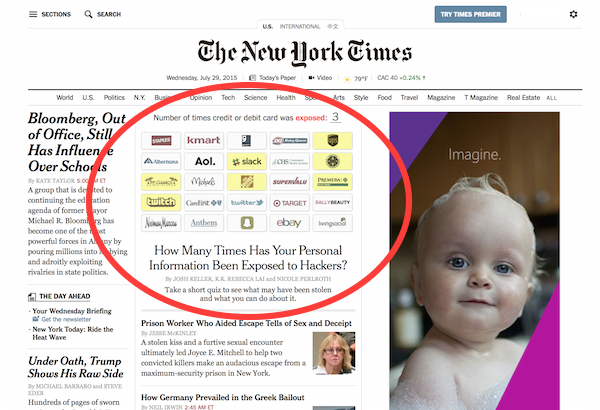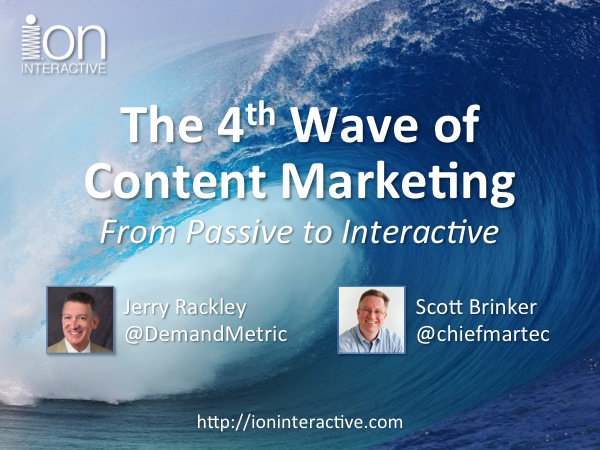I woke up this morning to read an incredibly exciting story on Search Engine Land, Yelp Ratings Appear In Google AdWords.

This may be one of the most game changing experiments in the history of advertising.
Here’s why.
Last year, I did a research project on people’s attitudes towards sponsored search advertising, which led to a blog post that study reveals issues with search ads — trust and usefulness. (I have since also read similar research done by Bernard Jansen, Anna Brown, and Marc Resnick in an academic paper, “Factors relating to the decision to click on a sponsored link.”)
The net conclusion: people don’t find advertising — even search advertising — to be particularly useful or trustworthy.
While this may not come as a surprise to some, I found it a tad surprising that such a negative bias existed even in sponsored search on Google, where ads are relatively subtle, clearly identified, and generally quite relevant to a user’s search task.
That’s an incredibly dangerous attitude to have growing in the wild, as — if unchecked — it threatens the entire ecosystem of advertising and massive ad-supported services such as Google.
Exploring ways to address this problem, I put together an experiment that (via a Firefox extension) overlaid Google ads with links for reviews and search results for each advertiser. It wasn’t anywhere near as elegant as the example above with Yelp, but the preliminary results were very encouraging:
The presence of reviews about advertisers — trustworthy, independent, third-party reviews — directly tied to their ads, had a remarkable impact. The two human subjects with whom I did a “think aloud” study became deeply engaged in the ads and their reviews, using that additional information to improve their search experience and identify preferred vendors.
If you’re interested in that study, I’ve included the Scribd report — a draft only! — at the bottom of this post.
The way Google incorporated this in the Yelp example above is beautiful. It communicates useful knowledge (the average rating and the number of reviews) from a known authority (Yelp) with a link to get more details of those reviews (presumedly why Yelp has a blue link).
That’s a lot of information and a strong trust signal embedded in what is a relatively subtle visual representation. The brilliant Zen simplicity of Google ads remains intact, simply enhanced.
In my experiment, I automatically included overlays for reviews and other search results for all advertisers — there was no way to avoid your reputation. But in this trial with Google, it’s conceivable that the Yelp review is something that the advertiser agreed to have included.
Such an opt-in mechanism can work though: reputable advertisers will choose to include reviews — it only helps them — while advertisers with poor performance would not. But the absence of reviews on an ad, particularly when its competitors have them, would be a sufficiently strong indicator itself.
Yelp won’t be the only source of authoritative reviews, of course. I suspect that Google will offer similar hooks to Trip Advisor for travel-related reviews or CNET for high-tech product reviews. The advertiser may have a choice of selecting from approved independent, third-party review sites that are most relevant to their domain.
This is Consumer Reports for the 21st century, in a highly distributed and collective intelligence implementation.
The beauty of this virtuous cycle is this: advertisers are incentivized to do everything they can to win excellent reviews from their customers. The better your product or service, the better your reviews, the more you’d be inclined to advertise that fact. And — hopefully — the more inclined people will be to pay attention to such “ads” because they’re not marketing spin but objective, useful information relevant to their search.
Advertising becomes less about the cleverness of your ad, and more about the earned reputation of your company.
Think about the implications of that.
This takes disruptive innovation in advertising to a whole new level — ads are not about their creative, but simply paid placement of their earned reputation.
And for end-users, who have been concerned about trust and usefulness, isn’t this really what they want to know?



Very interesting. I wonder if Google will eventually design their own Yelp since its takeover attempt in December was unsuccessful: http://www.techcrunch.com/2009/12/20/yelp-walks-away-from-google-deal-and-half-a-billion-dollars/
Good in theory until you realise that an advertiser with a huge range of goods will always receive more ratings than a niche supplier with a smaller amount of goods and therefore sales. The ratings therefore become less anout what you are trying to buy and more about the size of the company. Could be counter productive for the likes of Google if the smaller dealers start withdrawing their ads believing they are unfairly being penalised.